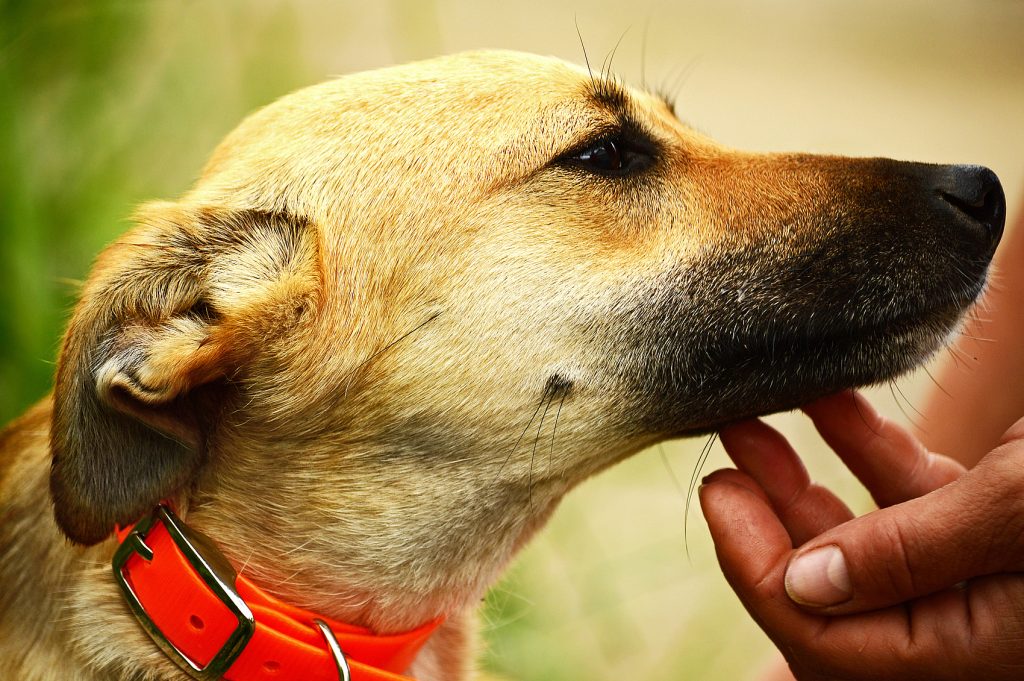We’re all familiar with the health benefits of raw honey, but did you know that it can also be great for your dog? Raw honey has been valued for centuries, with even Hippocrates, the “Father of Medicine,” prescribing it as a remedy. In fact, ancient petroglyphs show people collecting honey from beehives over 7,000 years ago!
The Many Benefits of Honey for Dogs
Raw honey can do wonders for both people and pets. It has been shown to speed up the healing of skin conditions, ease seasonal allergies, improve digestive health, and provide your dog with a natural energy boost.

- Vitamins & Minerals: Raw honey is packed with essential vitamins (A, B-complex, C, D, E, and K) and minerals like calcium, potassium, manganese, and copper—important for your dog’s overall health.
- Antioxidants: Honey is rich in flavonoids, which act as antioxidants. These help slow the aging process, boost immunity, and prevent illness—benefits that are important for your dog’s health too.
- Simple Sugars: Raw honey contains simple sugars, like glucose and fructose, that are easier for your dog to absorb than complex sugars found in processed foods. These sugars provide a quick source of energy without the crash.
- Relieving Kennel Cough: Just like honey soothes a sore throat in humans, it can help ease your dog’s dry, unproductive cough caused by kennel cough. It coats the throat and helps reduce the urge to cough.
- Allergy Relief: One of raw honey’s best-known benefits is its ability to relieve allergy symptoms. Honey helps in a similar way to allergy shots by exposing your dog to small amounts of local pollen, which can build up their immunity over time. K9 Honey even blends pollen from nine different regions to help dogs no matter where they live.
- Better Digestion: Raw honey is gentle on your dog’s stomach. Unlike other foods, it doesn’t ferment in their belly, helping to calm and coat the stomach lining, which can aid in digestion.
- Wound Healing: Studies show that honey—especially varieties like Manuka honey—can help speed up healing and reduce infection in wounds. Some researchers are even exploring how raw honey could help treat antibiotic-resistant infections, such as MRSA and VRE.
- Helping Senior Pets: If you have an older dog, you might be interested to know that raw honey has been reported to improve mobility in dogs with arthritis. The anti-inflammatory properties in honey may help reduce joint pain and stiffness.
Given all these amazing benefits, K9 Honey has created the first honey specifically designed for dogs. Blended with pollen from nine regions, this honey can help alleviate allergy symptoms and improve your pet’s overall health—whether they’re at home or traveling with you.
How Much Honey Should You Give Your Dog?
As with any treat, moderation is key. Too much honey can lead to weight gain or dental issues, so it’s important to stick to the recommended serving sizes. Most vets agree that when given in the right amounts, honey can be a beneficial addition to your dog’s diet.
Here are the suggested daily serving sizes based on your dog’s weight:
- 1-10 lb dog: ½ teaspoon
- 11-30 lb dog: 1 teaspoon
- 31-50 lb dog: 2 teaspoons
- 50+ lb dog: 1 tablespoon

Are There Any Dogs Who Shouldn’t Have Honey?
While honey is generally safe for most dogs, there are a few exceptions. Always check with your veterinarian before introducing any new foods or treats to your dog’s diet.
- Young Puppies: It’s recommended to wait until puppies are at least 3 months old before giving them honey. This is because raw honey may contain spores from a type of bacteria that could cause botulism in puppies with undeveloped digestive systems.
- Diabetic Dogs: The effects of honey on diabetic dogs are still debated. Some believe that honey can slowly raise insulin levels and is okay in small amounts, while others suggest avoiding it altogether. Always consult your vet for advice on the best diet for your diabetic dog.
- Dogs Allergic to Bees: If your dog has an allergy to bee stings, you should be cautious with raw honey. While rare, it’s possible that honey could cause skin reactions or oral ulcers in dogs with bee allergies. It’s a good idea to talk to your vet if you’re unsure.












